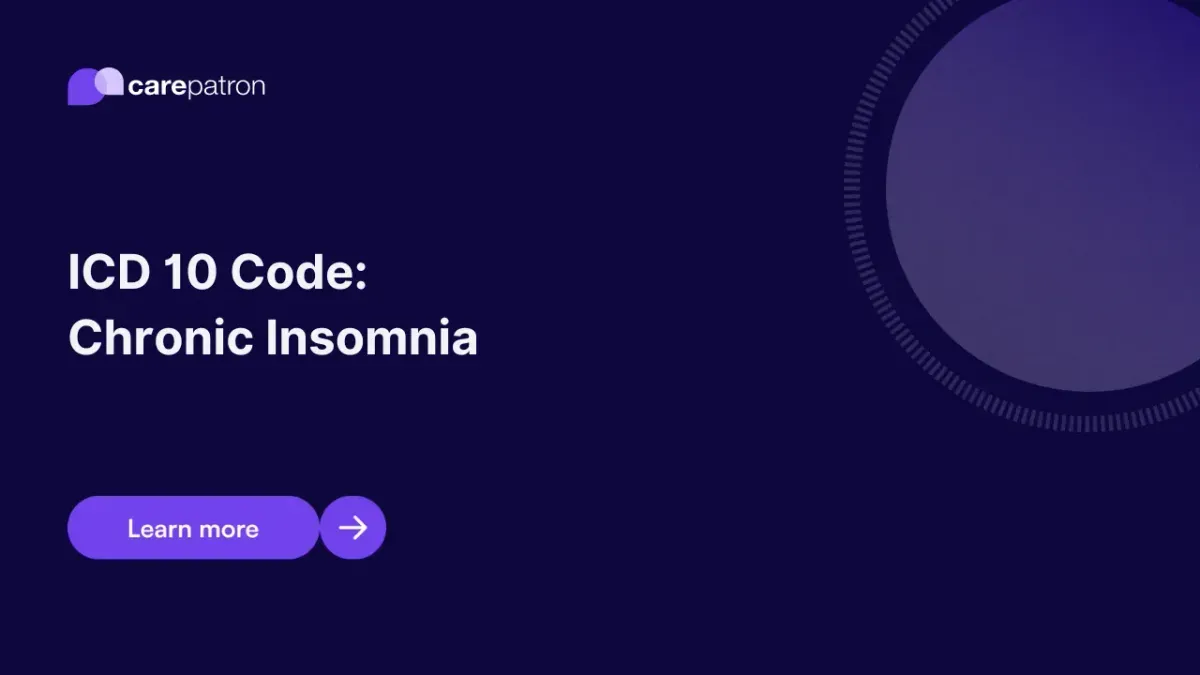
Chronic Insomnia ICD-10-CM Codes
Read and discover the essential ICD-10-CM codes for chronic insomnia you can use!
Use Code
Commonly asked questions
ICD-10 codes for chronic insomnia are used for accurate diagnosis, treatment planning, and billing.
Common treatments include lifestyle changes, cognitive-behavioral therapy, and medication, often tailored to the individual patient's needs.
It is a standardized code that categorizes the specific type of insomnia a patient has, important for medical billing, research, and patient care.
EHR and practice management software
Get started for free
*No credit card required
Free
$0/usd
Unlimited clients
Telehealth
1GB of storage
Client portal text
Automated billing and online payments
